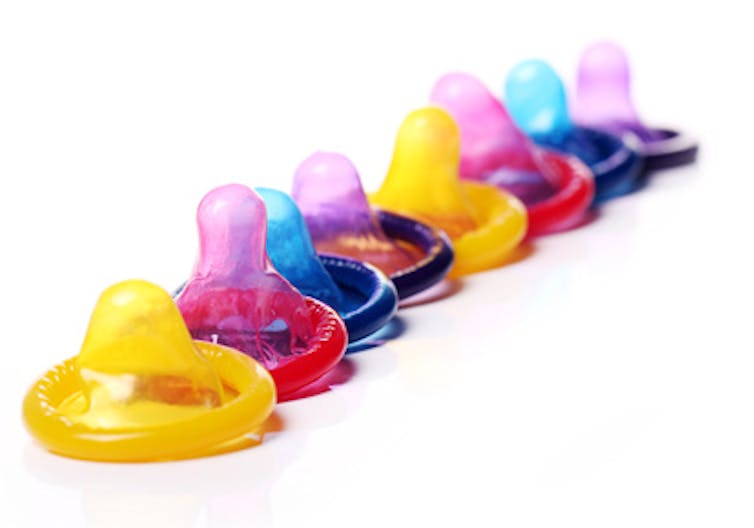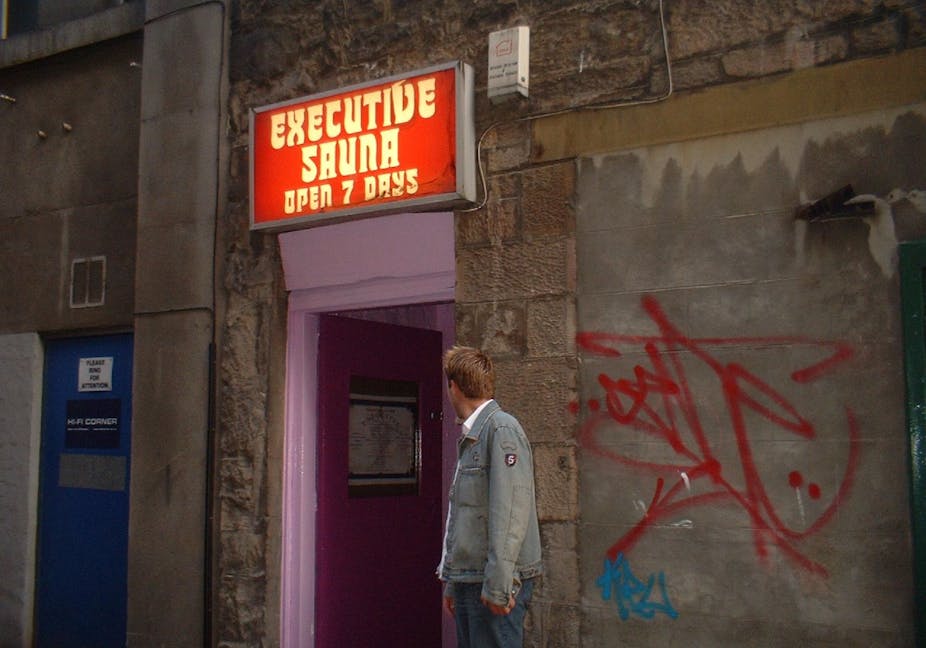Scottish police were forced to issue a statement that they did “not advocate the banning of condoms” after a BBC report, which ran under the headline “Police ask for condom ban in Edinburgh saunas”, said: “Police Scotland has written to the city council arguing that if it grants licences for five saunas it should be on condition that no items of a sexual nature are allowed on the premises.” similar headlines appeared across other media outlets, including the Mirror, and The Scotsman.
The story began as the council considered the license renewal of 13 “saunas”, which in this case were referred to a mix of places where women “entertain” as masseuses and gay saunas, where members can engage freely in sex with each other.
It appeared a bizarre and paradoxical moment for HIV prevention and social justice in Scotland. The angry response from those working to prevent HIV was palpable, blunt and to the point. Experts such as Robert McKay, the national director of Terrence Higgins Trust, called it “draconian”, while Nadine Stott, of the charity Scot-Pep, said it went “against all basic common sense”.
Police Scotland’s subsequent statement said it had merely submitted a number of written recommendations for their consideration as part of the council’s review of licences and had at no point made reference to the banning of condoms. It said:
The issue of prostitution is a complex one and we work with the City of Edinburgh Council and local health services to ensure the safety of those involved in the sex trade.
The removal of “items of a sexual nature”, which must surely include condoms isn’t the best way to start ensuring safety in venues where sex takes place and rates of unprotected sex remain high.
A better way to do things
As the BBC article pointed out, NHS Lothian distributes hundreds of thousands of condoms to saunas each year. Along with charities, it also provide services for sex workers such as needle exchange, hepatitis immunisations and drug and alcohol support. In addition, safer sex and awareness of infections is something that is regularly communicated to sex workers such that there is a package of public health-focused initiatives, supported by government funding, that looks to be undermined by such irresponsible recommendations, subsequent moral panic and ensuing confusion.
Research at GCU has focused repeatedly on the barriers to condom use and other aspects of sexual health within a variety of populations. We consistently find that social and cultural factors shape sexual activity, condom use and resulting sexual health.

Stigma, silence and a lack of engagement with the reality of contemporary sexual life consistently disadvantage all and lead to negative sexual health outcomes. These aspects of sexual health also critically disadvantage some more than others.
Throughout our research we find that fundamental health inequalities enable and constrain different groups of people to use condoms, seek HIV testing and access appropriate treatment and care. Saunas such as those in Edinburgh represent a perfect storm of vulnerability for HIV and sexual ill-health. They reflect many of the issues which drive sexual health inequalities.
Takes two to tango
Condom use is never an individual behaviour; it always takes two to tango and it is influenced by wider social and cultural norms and other structural level influences. And within saunas, gender dynamics, economic factors and the concomitant interplay of power all systematically work against translating desire to use condoms into actual sexual practice. Protective sexual scripts which govern the rules and expectations concerning sex and condom use can be absent.
Against this backdrop, factors that facilitate condom use can be vital in helping to improve everyone’s sexual health. And the provision of condoms is a very basic step in enabling their use. Their obvious presence as a non-verbal cue serves as a behavioural prompt; “nudging” people into using them.
Now the council has made its licensing decisions - seven out of 13 of Edinburgh’s saunas have had their licenses renewed, although it isn’t clear how much weight the police recommendations had on any decision. But this whole issue looks like a new lack of pragmatism towards sex workers and the gay sex scene and, as writer Ally Fogg argues, may tie into the transfer of the responsibility of law enforcement to a zero-tolerance of Strathclyde police under a new national police force.
Recommendations published by the World Health Organization (WHO) in partnership with UNFPA, UNAIDS, and the Global Network of Sex Work Projects, suggest that countries work towards the decriminalisation of sex work, improve sex workers’ access health services, empower sex workers to manage their sexual health and emphasise correct and consistent condom use.
At the forefront of the guidelines is the protection of sex workers from HIV and other sexually transmitted infections, given their vulnerability for various reasons. Any attempt to undermine health promotion efforts could have devastating effects on HIV and STIs in Scotland, which has real world consequences for the lives of individuals, not to mention the various lifetime costs involved in treating and caring for someone living with HIV.
We cannot afford for anyone to become complacent. It was right that organisations such as Scot-Pep and others spoke out so strongly and that the media covered this. It’s also important we continue the dialogue after the headlines have faded away.

